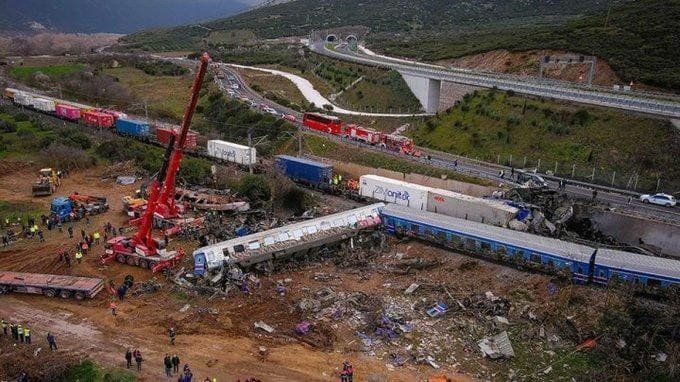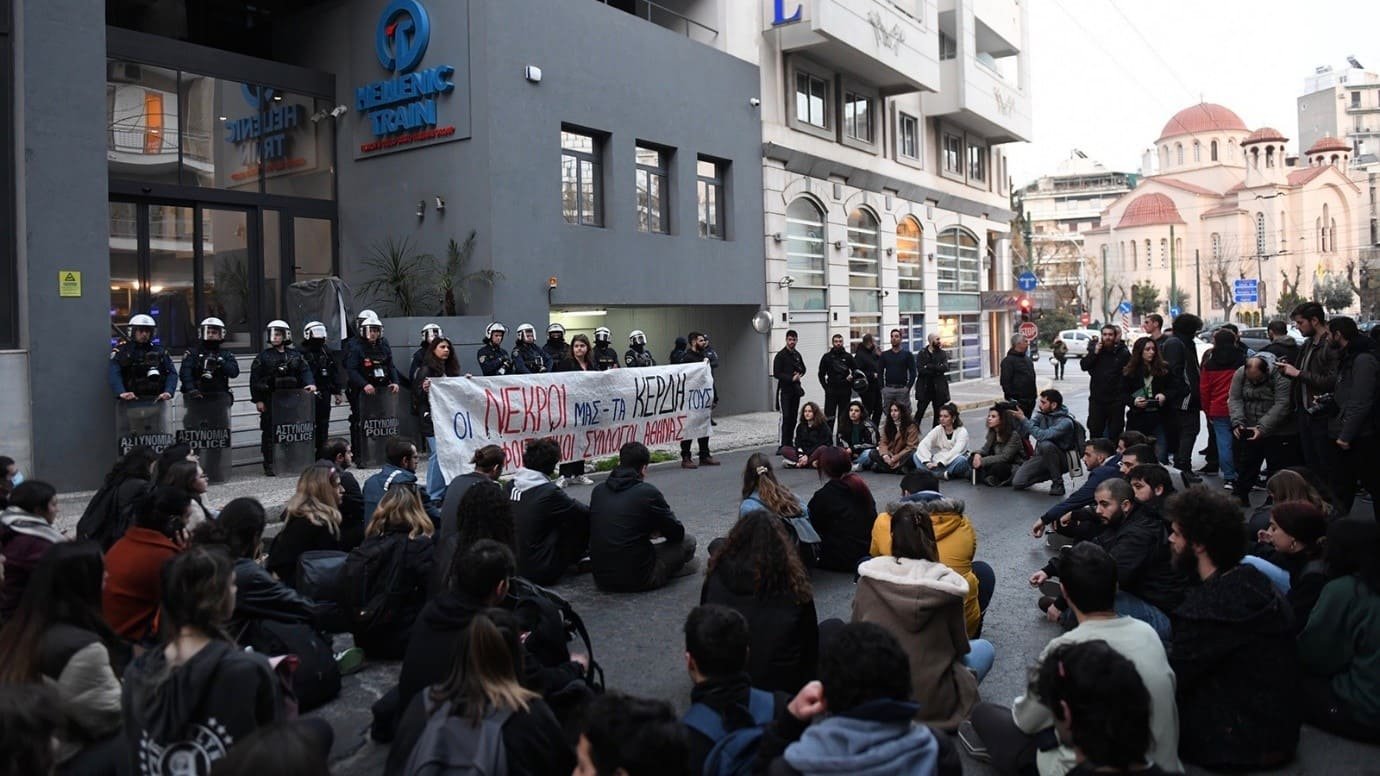Report by Kamgar Ekta Committee (KEC) correspondent

On 28 February 2023, a freight train crashed into a passenger train near Larissa in Greece. The two trains travelled for several kilometres along the same track on the Athens–Thessaloniki line before colliding at high speed. The passenger train was carrying approximately 350 people, most of whom were students in their 20s going back to college after a long holiday weekend. More than 50 passengers were killed in the crash. The crash was so violent that some passengers have not been identified. Many others have been severely injured.
What caused the collision?
“Our trains operate like they did 30 years ago,” said a railway worker.
Although the government has been quick to blame the station master of Larissa, the reality is that this was a failure of the government to invest in the safety and modernization of the system. There was no electronic train safety radar system in place!
Railway unions in Greece have been writing to the railway authorities for years, warning them about the dangers of the current system; given the lack of staff, inadequate infrastructure and hardly any automated signalling, a disaster was imminent.
“Unfortunately, our long-standing demands for full-time staff hirings, better training and above all, implementation of up-to-date security systems have always ended up in the wastepaper basket,” a railway workers’ federation said in a statement. Another railway workers’ union stated that in place of the 2100 workers required to man the railroad, only 750 have been employed.
“The light signals don’t work nor does the traffic control system,” said a union leader. “If these worked the drivers would see the red light and the trains would have stopped safely, 500 to 1,000 meters from each other. We’ve said it repeatedly. This would not happen if the safety systems were working. The information is given by the stationmaster via radio.”
Privatisation
The European Union, European Central Bank and International Monetary Fund demanded the privatisation of the Greek railway in 2013 as a condition applied for providing relief during a financial crisis.
In 2017, the state-owned rail operator was privatised and sold to Italy’s Ferrovie dello Stato Italiane Group. The private railway company Hellenic Train S.A. operates passenger and freight trains on major railway lines in Greece. The passenger train involved in the crash was operated by Hellenic Train. These train operators are entirely driven by profit and have made no investment to ensure safe train operations.
Protests in Greece

Railway workers began a strike on 2 March 2023 and extended it to 3 March. Unions also held a protest on 2nd March night in Athens outside the office of Hellenic Train. People have been organising massive demonstrations in Larissa, Athens, Thessaloniki and other cities.
“Most of all we feel rage that this could happen in the year 2023, how two trains can collide… when there is so much technology,” said a 21-year-old student participating in the demonstration.
Another protestor said: “Everyone knows that if the Greek state had wanted, this accident could have been prevented. My own son worked on upgrading the signalling system – nine years ago. Ever since it’s been stalled because companies are only ever interested in profits.”
When will we wake up?
We are fed the false propaganda that privatisation leads to better services and modernization. However, the accident in Greece is another illustration of the reality of privatisation. Private companies care only for their profit and not for public safety.
Railway workers in India have also been raising demands for the filling of vacancies and investment in safety measures. Every year, hundreds of track maintainers are run over. Due to staff shortage, railway workers are overworked and experience serious health problems. How can workers ensure the safety of passengers when their own lives are at stake every single day?
Railway workers in Greece have complained that successive governments—no matter the party—have ignored their safety-related demands and gone ahead with privatisation. Workers in India too must not be deceived. It is the need of the hour for workers and people to unite and demand the filling of vacancies, better working conditions and investment in safety. We must unitedly oppose the anti-people privatisation that is gaining speed in the Indian Railways. It is the responsibility of workers and conscious citizens to inform the public of the shortcomings of the present system and the dangers of privatisation before it is too late.
